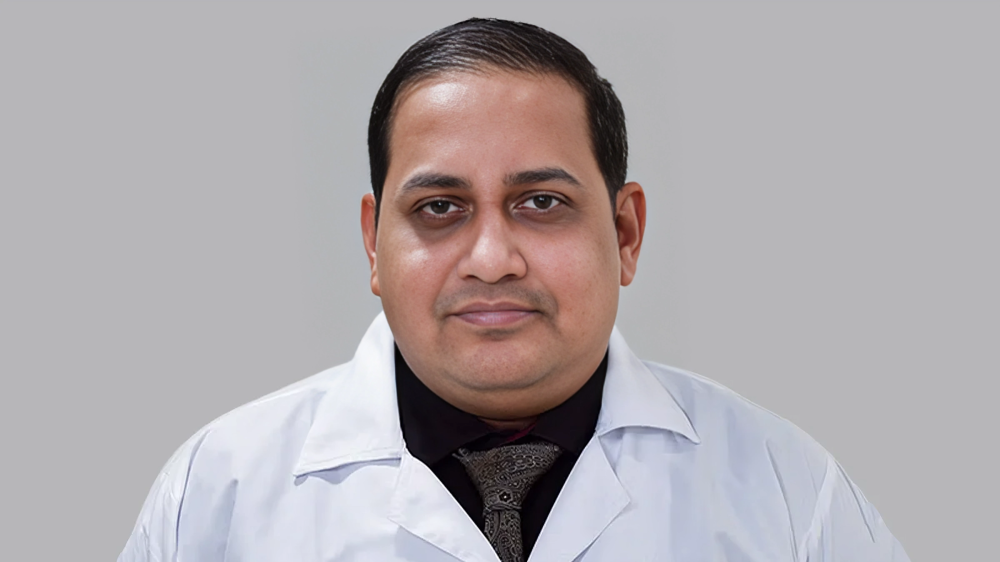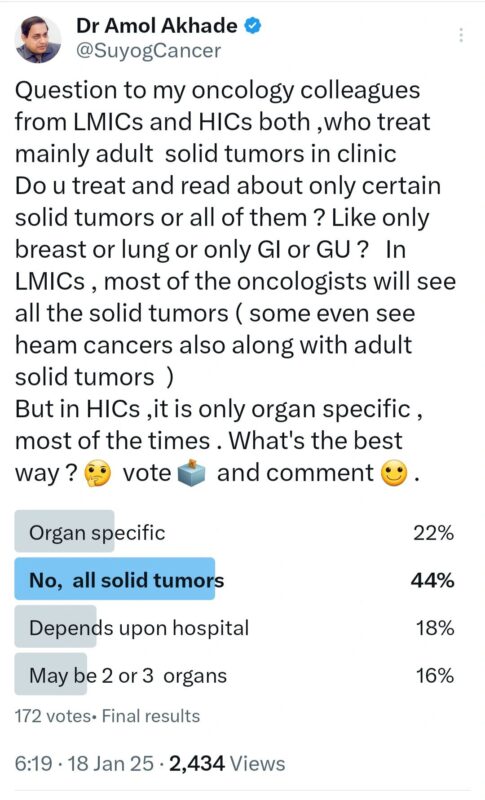
Amol Akhade’s review on oncology practices among 172 oncologists worldwide
Amol Akhade, Consultant Medical Oncologist and Hemato-oncologist at Suyog Cancer Clinics, shared a post on LinkedIn:
“I conducted an online review on oncology practices among 172 oncologists worldwide, focusing on those who primarily treat solid tumors. The survey revealed interesting insights into their clinical approaches:
- 44% of oncologists manage all solid tumors.
- 22% practice organ-specific oncology.
- 16% specialize in 2 or 3 specific organs.
- 18% adapt their practice based on hospital needs.
Key observations from the discussions include:
1. In Low- and Middle-Income Countries (LMICs), most oncologists treat all organs due to high patient volumes, limited oncologists, and financial considerations. Some LMIC hospitals are transitioning to organ-specific practices and slowly that trend is increasing.
2. In High-Income Countries (HICs), community oncologists often handle diverse solid tumors to meet community needs. Apex institutions in HICs typically follow organ-specific models, supported by structured finances and favorable oncologist-to-patient ratios.
3. Speculation arises about potential subspecialization trends in oncology, pondering whether future oncologists might focus on specific cancer subtypes like triple-negative breast cancer or oncogene-addicted NSCLC.
4. The debate on patient benefits between organ-specific and broader oncology practices remains inconclusive, lacking comparative studies due to numerous confounding variables.
The evolving landscape of oncology, driven by expanding cancer knowledge, raises questions about potential subspecialization paths and the impact of practice models on patient outcomes.”

More posts featuring Amol Akhade.
-
ESMO 2024 Congress
September 13-17, 2024
-
ASCO Annual Meeting
May 30 - June 4, 2024
-
Yvonne Award 2024
May 31, 2024
-
OncoThon 2024, Online
Feb. 15, 2024
-
Global Summit on War & Cancer 2023, Online
Dec. 14-16, 2023
